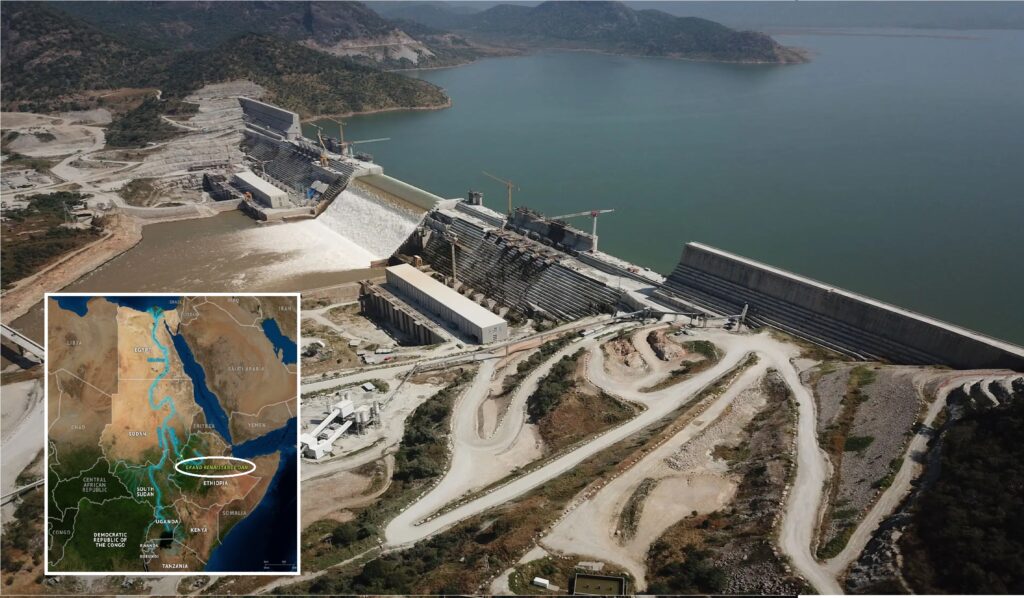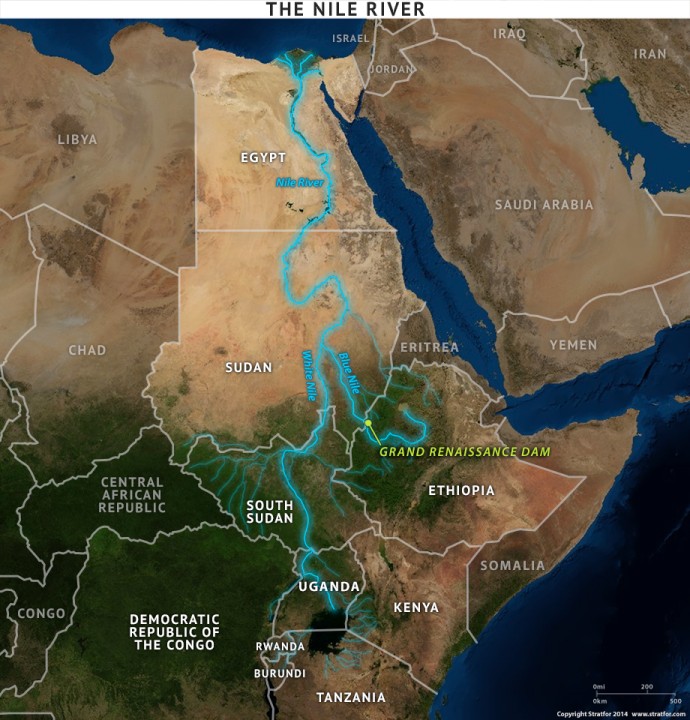|
Getting your Trinity Audio player ready...
|

- The geopolitical dynamics surrounding the Nile River centred on the Grand Ethiopian Renaissance Dam (GERD), represent a crucial and highly volatile issue.
- The humanitarian repercussions of water scarcity, combined with unresolved disputes, political tensions, and historical rivalries, create a precarious situation.
- International involvement and mediation for a peaceful and equitable resolution are imperative for a stable Northeast Africa.
The situation surrounding the Nile River, particularly the construction of the Grand Ethiopian Renaissance Dam (GERD), is a highly contentious matter with the potential to result in a crisis for Egypt and Sudan. This issue is often referred to as a geopolitical “flashpoint” in the region.
Background and Concerns
The Nile River flows through 11 countries in East Africa, but Egypt and Sudan are the primary downstream nations that have historically heavily relied on the Nile’s waters for agriculture, drinking water, and energy.
1. Water Scarcity: Both Egypt and Sudan are regions with limited water resources, and their dependence on the Nile’s waters is crucial. Egypt, in particular, faces severe water scarcity issues and is among the most water-stressed nations globally. The construction of the GERD raises worries about a potential reduction in water flow downstream.
2. GERD Construction: Ethiopia initiated the construction of the GERD on the Blue Nile, a significant Nile tributary, in 2011. Ethiopia views the dam as vital for its development and economic progress. However, Egypt and Sudan are concerned that the dam’s filling and operation could substantially diminish their access to water resources.
️ Humanitarian Concerns
1. Water Scarcity: Poor management of the GERD’s filling and operation may decrease downstream water flow, potentially leading to water shortages in Egypt and Sudan. Such shortages would impact millions of people, affecting both agriculture and access to drinking water.
2. Agricultural Consequences: Reduced water flow has the potential to lower crop yields in both nations, posing a threat to food security. Agriculture plays a vital role in Egypt and Sudan, with approximately 140 million people relying on it. This number continues to grow, and the Nile is essential for sustaining this large population. The failure to reach an agreement could put millions of lives at risk.
3. Reliance on Hydropower: Egypt and Sudan rely on downstream hydropower dams, and alterations in water flow could disrupt electricity generation. Power shortages could have significant economic and social repercussions.

Recent Escalation
1. Independent GERD Filling: If Ethiopia proceeds to fill the GERD without a comprehensive agreement with downstream nations, it could trigger a crisis. Egypt has previously issued warnings, including potential military action, to safeguard its water security. Sudan might also become involved militarily due to the threat to its livelihood.
2. Stalled Negotiations: Despite years of negotiations, a comprehensive agreement has not been reached. Ongoing talks and rising tensions could lead to a diplomatic deadlock, increasing the risk of escalation. Ethiopia has demonstrated a persistent inclination to escalate the situation.
3. Broader Regional Impact: The Nile issue has the potential to destabilise the entire East African region. It involves multiple countries with diverse interests, and disputes could strain relations, impact broader regional geopolitics, and even result in conflict. A land invasion may not be necessary; Egypt could lend support to various ethnic groups with grievances against Addis Ababa. Ethiopian armed forces could face challenges dealing with such a widespread insurgency while securing the dam. Continuous attacks could potentially cripple the structure.
In summary, the geopolitical dynamics surrounding the Nile River centred on the GERD, represent a crucial and highly volatile issue. The humanitarian repercussions of water scarcity, combined with unresolved disputes, political tensions, and historical rivalries, create a precarious situation. International involvement and mediation are imperative to seek a peaceful and equitable resolution, preventing disaster and regional conflicts. It remains a pressing concern for stability in Northeast Africa, as armed conflict would only set back the limited progress achieved by these three countries in recent decades.
(The author is a post-graduate student in International Relations at Kalinga University, Raipur. Views and opinions expressed are the author’s own)
Aayush Pal is a freelance writer on contemporary geopolitical developments. The views expressed in his work are entirely his own.
